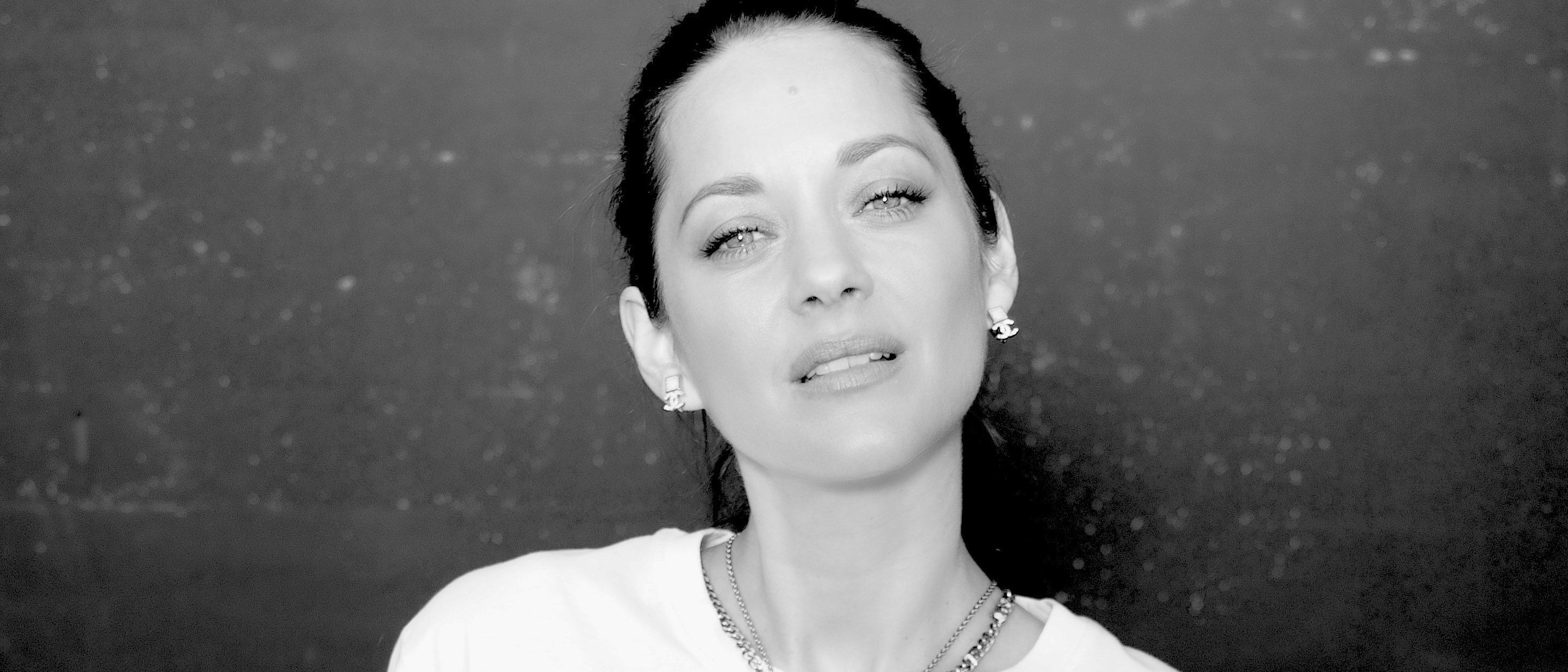Concert information
Info
The accused is a national heroine, the trial a farce. In Arthur Honegger’s oratorio Jeanne d'Arc au bûcher, Joan of Arc looks back on her life, her visions, and her successes during a show trial in which she is sentenced to be burned at the stake. The work is a powerful drama and at the same time a revealing parable of corruption and the abuse of power. Honegger combines different musical styles here, from chorale to jazz-inflected music-hall sounds, to create a captivating sound painting. The conductor of the evening is Alan Gilbert. Actress and Oscar-winner Marion Cotillard will perform as the narrator.
Artists
Berliner Philharmoniker
Alan Gilbert conductor
Marion Cotillard speaker (Jeanne d’Arc)
Eric Génovèse speaker (Brother Dominique)
Christian Gonon speaker
Elsa Benoit soprano (La Vierge)
Adèle Charvet mezzo-soprano (St Marguerite)
Anna Kissjudit contralto (St Catherine)
Valentyn Dytiuk tenor (Porcus, Eine Stimme, Herault 1, Der Geistliche)
Alex Rosen bass (Eine Stimme, Herault 2, Ein Bauer)
Vokalhelden childrens’ choir
MDR-Rundfunkchor
Côme de Bellescize stage direction
Vony Sarfati Produktionsleitung
Colombe Lauriot Prévost costumes, stage equipment
Thomas Costerg light design
Programme
Arthur Honegger
Jeanne d'Arc au bûcher, dramatic oratorio

Main Auditorium
26 to 80 €
Introduction
19:15
Series G: Concerts with the Berliner Philharmoniker

Main Auditorium
26 to 80 €
Introduction
19:15
Series H: Concerts with the Berliner Philharmoniker

Main Auditorium
26 to 80 €
Introduction
18:15
Series K: Concerts with the Berliner Philharmoniker
About the staging
Video
Director Côme de Bellescize and speaker Christian Gonon explain in this video what you can expect from the production of the oratorio, and why the Vokalhelden children’s choir plays a special role in it.
Peasant girl with charisma
The historical Joan of Arc

She is France’s national saint: Joan of Arc, the peasant girl from Lorraine, is considered the decisive protagonist in the Hundred Years’ War between England and France. She saw herself as a messenger of God, and her efforts turned the tide of war in France’s favour. Nevertheless, she was burnt at the stake.
Biographies
Alan Gilbert
“Orchestras,” says Alan Gilbert, ”should play the symphonies of Beethoven, Brahms and Bruckner. But we also need to explore other genres and styles, and motivate today's composers to continue working.” After all, he says, orchestras around the world are trying to ”bring music to people who are still unfamiliar with it.” Alan Gilbert, who was Music Director of the New York Philharmonic from 2009 to 2017, is Chief Conductor of the NDR Elbphilharmonie Orchestra and Music Director of the Royal Opera in Stockholm.
Born in New York, he enjoys an outstanding reputation in the international music world as a passionate interpreter of a broad range of repertoire, from the Baroque era to the present day. He is regularly in demand as a guest conductor with leading international orchestras, and has conducted opera productions at the Metropolitan Opera in New York, La Scala in Milan, the Zurich Opera House and the Semperoper in Dresden, among others. Gilbert is Honorary Conductor of the Royal Stockholm Philharmonic Orchestra, Principal Guest Conductor of the Tokyo Metropolitan Symphony Orchestra, and founder of the organisation Musicians for Unity, which campaigns for peace, development, and human rights under the leadership of the United Nations. He has been honoured with many international awards, including the Ditson Conductor's Award from Columbia University in New York in recognition of his commitment to the works of American composers and contemporary music.
Marion Cotillard
Marion Cotillard has the gift of ”telling great stories with few facial expressions,” wrote German magazine Stern; and she revives the ”seductive aura of the old film divas in modern cinema,” added the Süddeutsche Zeitung. With over 90 films to her name, she is one of France’s most successful actresses – also in Hollywood.
Christopher Nolan cast her in his science fiction Inception alongside Leonardo DiCaprio and in The Dark Knight Rises, the conclusion of his Batman trilogy; Woody Allen gave her the role of an artist's muse in his romantic comedy Midnight in Paris; together with Brad Pitt, she was seen on the big screen in the thriller Allied, directed by Oscar winner Robert Zemeckis. Marion Cotillard, who was born into a French theatre family and first appeared in front of the camera at the age of 17 in an episode of the TV series Highlander, completed her training at the Conservatoire d'Art Dramatique in Orléans. Her breakthrough in France came with director Luc Besson's Taxi trilogy. Her performance in the leading role in Olivier Dahan's melodrama La vie en rose, about the life of chanson icon Edith Piaf, sealed her reputation as one of the most important actresses in France. She has won numerous awards including the Golden Globe, the British Academy Film Award, the César and an Oscar for Best Actress in a Leading Role in La vie en rose.
Éric Génovèse
Éric Génovèse discovered the theatre at the age of nine. He later studied acting at the Conservatoire national supérieur d'art dramatique de Paris in the classes of Pierre Vial, Madeleine Marion, Jean-Pierre Vincent and Viviane Théophilidès.
In 1993, he joined the Comédie-Française, where he soon played prominent roles - in highly acclaimed productions by directors such as Youssef Chahine, Jorge Lavelli, Georges Lavaudant and Robert Wilson. Éric Génovèse has appeared at the Comédie-Française in many classics by William Shakespeare, Jean Racine, Molière and Pierre Corneille. However, he is also committed to the repertoire of the 20th and 21st centuries, for example in plays by Eugène Ionesco, Berthold Brecht and Marguerite Duras. He is a regular narrator in musical theatre productions, such as Les Troyens and Béatrice et Bénédict by Hector Berlioz, Le Martyre de Saint-Sébastien by Claude Debussy, Le Roi David and Jeanne d'Arc au bûcher by Arthur Honegger and The Carnival of the Animals by Camille Saint-Saëns. In addition, Éric Génovèse works as a theatre and opera director - most recently with productions of Verdi's Rigoletto in Bordeaux, Mozart's Cosí fan tutte at the Théâtre des Champs-Elysées in Paris and Donizetti's Anna Bolena at the Vienna State Opera: ‘Opera,’ he says, ‘is one of my great passions.’
Christian Gonon
As a child, Christian Gonon already dreamed about theatre; his mother regularly brought him recordings of the Théâtre National Populaire and the Comédie-Française. ‘I spent hours listening to the voices of Jean Vilar, Gérard Philippe, Maria Casares, Robert Hirsch, Jacques Charron ...’ he recalls.
At the age of 18, Christian Gonon was accepted at the École D'art Dramatique Jean Périmony in Paris, and at 21 he transferred to the École Nationale Supérieure des Arts et Techniques du Théâtre. Before becoming a member of the Comédie-Française, he won audience and press acclaim as Count de Guiche in Edmond Rostand's Cyrano de Bergerac, directed by Jérôme Savary, as d'Artagnan in The Three Musketeers by Jean-Louis Martin Barbaz, and as de Lacroix in Georg Büchner's Dantons Tod. Christian Gonons has also enjoyed success in cinema and television - including in the leading role in Sébastien Gabriel's film Et si je parle, in Les hommes sont des rêves (directed by Guillaume Georget), and in a series of short films such as Memento by Jean-Max Peteau, which won the Grand Prix at the 1993 Avoriaz Festival and the Audience Award at the Clermont-Ferrand Festival. In addition, the actor and narrator is known to French cinema audiences as the voice of Colin Firth and Christoph Waltz.
Plan your visit
Opening hours, program booklets, dress code, introductions and more
How to get to the Philharmonie Berlin
Whether by bus, train, bike or car: Here you will find the quickest way to the Philharmonie Berlin - and where you can park there.
Ticket information
Advance booking dates, opening hours, seating plans, discounts

